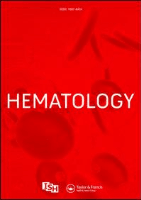
Hematology
Scope & Guideline
Unlocking Potential: Pioneering Research in Blood Disorders
Introduction
Aims and Scopes
- Hematologic Malignancies:
Research on conditions such as leukemia, lymphoma, and myeloma, including their genetic underpinnings, treatment responses, and prognostic factors. - Transfusion Medicine:
Studies related to blood components, transfusion practices, and the impact of transfusion on patient outcomes, including management of hemolytic diseases. - Genetic and Molecular Pathology:
Focus on the identification of genetic mutations and molecular markers that influence the diagnosis, treatment, and prognosis of hematologic disorders. - Clinical Trials and Therapeutics:
Investigations into the efficacy and safety of novel therapies, including immunotherapies and targeted treatments for various blood disorders. - Patient-Centered Care:
Research emphasizing the experiences of patients with hematologic conditions, including quality of life assessments and treatment preferences. - Epidemiology and Public Health:
Studies examining the prevalence, risk factors, and health outcomes associated with hematologic diseases across different populations. - Innovative Diagnostic Techniques:
Exploration of new methodologies for diagnosing hematologic conditions, including advanced imaging and biomarker analysis.
Trending and Emerging
- Precision Medicine in Hematology:
An increasing number of studies are focusing on tailoring treatments based on genetic profiles and molecular characteristics of patients, indicating a shift towards more personalized therapeutic approaches. - Immunotherapy and Targeted Therapies:
Growth in research on immunotherapies, including CAR-T cell therapies and monoclonal antibodies, showcases the evolving treatment landscape for hematologic malignancies. - Real-World Evidence and Patient Outcomes:
A trend towards gathering real-world data to assess treatment effectiveness and patient experiences, emphasizing the importance of practical outcomes in clinical settings. - Microbiome and Hematology:
Emerging research on the influence of the gut microbiome on hematologic conditions and treatment responses is becoming increasingly prominent, suggesting a novel area of investigation. - Novel Biomarkers and Diagnostic Tools:
There is a surge in studies identifying new biomarkers for diagnosis and prognosis, particularly in acute myeloid leukemia and multiple myeloma, indicating a focus on enhancing diagnostic precision.
Declining or Waning
- Traditional Chemotherapy Approaches:
There has been a noticeable decline in studies focused solely on traditional chemotherapy regimens, as the field shifts towards combination therapies and personalized medicine. - Basic Research in Non-Malignant Hematology:
Research specifically targeting benign hematological conditions, such as anemia types unrelated to malignancy, appears to be receiving less attention compared to more aggressive diseases. - Historical Reviews and Descriptive Studies:
Fewer publications are focusing on retrospective analyses or historical reviews, indicating a trend towards more innovative and forward-looking research methodologies.
Similar Journals
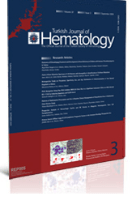
Turkish Journal of Hematology
Championing open access to vital hematology knowledge.Turkish Journal of Hematology is an esteemed publication dedicated to advancing the field of hematology, producing influential research since its inception in 1999 under the auspices of GALENOS PUBL HOUSE. With an Open Access model, it facilitates widespread dissemination of knowledge, allowing researchers, clinicians, and students to stay abreast of the latest developments in blood disorders and treatments. With an ISSN of 1300-7777 and an E-ISSN of 1308-5263, the journal holds a commendable position in the academic community, evidenced by its 2023 Q3 ranking within the hematology category and its standing at #80 out of 137 in the Scopus database, placing it in the 41st percentile. Covering a wide scope of topics within hematology, this journal serves as a critical resource for disseminating innovative research and clinical practices pertinent to the ongoing challenges faced in this vital area of medicine. With its continuous publication until 2024, Turkish Journal of Hematology remains a beacon for enhancing the understanding and treatment of hematological conditions within the Turkish and global medical communities.

Journal of Blood Medicine
Advancing Hematology: Unveiling Breakthroughs in Blood MedicineThe Journal of Blood Medicine, published by DOVE MEDICAL PRESS LTD, stands as a vital resource in the field of hematology, focusing on the latest research developments and clinical advancements in blood medicine. With an impact factor reflective of its growing relevance, this open-access journal has been delivering quality scholarly work since 2010, ensuring that critical research is readily available to the global scientific community. The journal operates under an open-access model, further enhancing its dissemination and accessibility to researchers, professionals, and students alike. In the 2023 rankings, it secured a Q3 category status within hematology and achieved a commendable 76th rank out of 137 in Scopus listings, indicating its commitment to quality and innovation in this specialized area. Located in New Zealand, the journal's diverse topics encompass clinical research, treatment modalities, and emerging therapies, contributing significant insights vital for shaping future advancements in blood medicine.

ANNALS OF HEMATOLOGY
Connecting researchers and clinicians for a healthier tomorrow.ANNALS OF HEMATOLOGY, published by Springer in Germany, stands as a premier platform for advancing knowledge in the field of hematology and medicine at large. With a significant impact factor and recognized rankings—Q2 in Hematology and Q1 in Medicine (miscellaneous) as of 2023—this journal is pivotal for researchers, clinicians, and students who are keen on exploring the latest developments in blood disorders, treatments, and innovative methodologies. Its broad scope encompasses original research, reviews, and discussions that aim to foster interdisciplinary dialogue, ensuring that the latest findings and theories are accessible to the scientific community. Although not an open-access journal, its rigorous peer-review process guarantees high-quality contributions, thereby solidifying its reputation as a vital resource in the hematological field. Founded in 1991, the ANNALS OF HEMATOLOGY continues to evolve, converging invaluable insights from both basic and clinical research until 2024. For those dedicated to improving patient outcomes and advancing hematological science, this journal remains an essential reference.
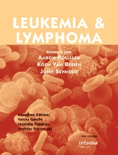
LEUKEMIA & LYMPHOMA
Transforming the landscape of cancer treatment and care.LEUKEMIA & LYMPHOMA is a prestigious peer-reviewed journal published by Taylor & Francis Ltd, focusing on vital research in the fields of hematology, oncology, and cancer research. With an ISSN of 1042-8194 and an E-ISSN of 1029-2403, this journal is recognized for its high-quality and impactful contributions to understanding blood cancers, with a notable impact factor reflective of its influence. Since its inception in 1989, LEUKEMIA & LYMPHOMA has continuously provided a platform for researchers and professionals to disseminate their findings, fostering advancements in diagnostic, therapeutic, and clinical strategies related to leukemias and lymphomas. The journal ranks in the Q2 category for both Hematology and Oncology research categories as of 2023, underscoring its commitment to excellence. The journal is based in the United Kingdom and serves a global audience, making it an essential resource for those dedicated to improving outcomes for patients with hematological malignancies.
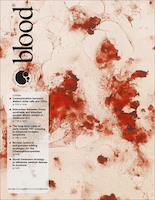
BLOOD
Exploring the Depths of Blood Science.BLOOD, published by the American Society of Hematology, is a premier peer-reviewed journal in the fields of Biochemistry, Cell Biology, Hematology, and Immunology. With an impressive impact factor and ranking in the top quartiles (Q1) across multiple disciplines, BLOOD is essential reading for researchers and professionals seeking to stay updated on the latest advancements in hematology and related fields. The journal has been a cornerstone of hematological research since its inception in 1946, providing a platform for rigorous scientific inquiry and discourse. Its commitment to publishing high-quality original research, comprehensive reviews, and insightful editorials makes it a vital resource for students, practitioners, and scientists alike. By offering exceptional access to influential publications, BLOOD continues to shape the future of hematology and enhance understanding of blood-related disorders, marking its vital role in advancing both basic and clinical research.
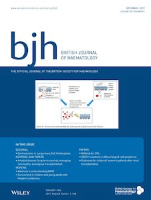
BRITISH JOURNAL OF HAEMATOLOGY
Advancing the Frontiers of Hematology ResearchBritish Journal of Haematology, published by Wiley, is a leading journal in the field of hematology, with an impressive impact factor reflecting its significance in the medical research community. Established in 1955, the journal has consistently contributed to advancing knowledge in hematology, currently holding a prestigious Q1 ranking in the Scopus category of Hematology, placing it in the top 18% of the field. The journal encompasses a broad range of topics including clinical and laboratory aspects of blood disorders and hematological malignancies, making it an essential resource for hematologists, researchers, and healthcare professionals. With its commitment to publishing top-tier research and clinical studies, the British Journal of Haematology plays a critical role in shaping treatment approaches and improving patient outcomes worldwide. Please note that this journal does not offer Open Access options, ensuring that published content is rigorously curated for quality and relevance.

Hemato
Advancing Hematological Research for a Healthier TomorrowHemato is a pioneering open-access journal dedicated to the field of hematology, published by the esteemed MDPI from its base in Basel, Switzerland. Launched in 2020, this journal aims to provide a platform for researchers, clinicians, and professionals to share significant findings and advancements in blood-related disciplines over a converged timeframe until 2024. With a commitment to disseminating high-quality research, Hemato seeks to foster collaboration and innovation in hematological studies, showcasing original articles, reviews, and clinical studies that contribute to expanding knowledge in this vital area. As an open-access journal, it promotes accessible scholarship, ensuring that groundbreaking research reaches a broad audience, thereby enhancing the impact on the global health community.
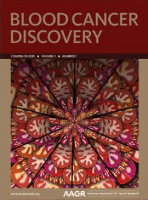
Blood Cancer Discovery
Uncovering Breakthroughs in Blood Cancer ScienceBlood Cancer Discovery is a premier academic journal published by the American Association for Cancer Research, dedicated to advancing the understanding of hematologic malignancies through cutting-edge research in the fields of oncology, biochemistry, and molecular biology. With an impressive impact factor and recognition as a Q1 journal across multiple disciplines, including cancer research and hematology, Blood Cancer Discovery serves as an essential platform for scholars and practitioners alike, facilitating impactful discourse and dissemination of pioneering findings. This open-access journal, established within the vibrant academic landscape of the United States, aims to bridge gaps in research and foster collaborations to ultimately enhance patient outcomes. Its Scopus rankings demonstrate its vital role in the critical advancement of cancer research and therapeutic development. By inviting contributions from a diverse range of disciplines, Blood Cancer Discovery is poised to drive innovation and inspire future advancements in understanding blood cancers.
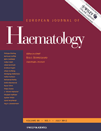
EUROPEAN JOURNAL OF HAEMATOLOGY
Connecting Experts in the Evolving Field of HematologyEUROPEAN JOURNAL OF HAEMATOLOGY, published by Wiley, serves as a vital resource for experts in the field of hematology, focusing on the latest advancements in blood disorders and therapies. With an ISSN of 0902-4441 and an E-ISSN of 1600-0609, this esteemed journal has been disseminating knowledge since 1986 and continues to thrive, converging its visionary approach through to 2024. Notably, it holds a distinguished Q2 ranking in Hematology and an impressive Q1 ranking in the broader category of Medicine (miscellaneous) as of 2023, highlighting its significant contribution to the scientific community. With a Scopus rank of #45/137 and a 67th percentile in the field, the journal is recognized for its rigorous peer-reviewed research, making it an indispensable publication for researchers, practitioners, and students aiming to stay at the forefront of hematological studies. Though not an open-access journal, it ensures broad accessibility to critical findings via its subscription model, thus fostering an informed and globally engaged audience.
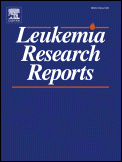
Leukemia Research Reports
Pioneering open access to vital leukemia insights.Leukemia Research Reports, published by Elsevier Advanced Technology, is a prominent open-access journal dedicated to the latest advancements in the field of hematology and oncology. Since its launch in 2012, this journal has been a vital resource for researchers, healthcare professionals, and students aiming to disseminate and access high-quality research articles focused on various aspects of leukemia and related blood disorders. With an impact factor indicative of its significance in the field, Leukemia Research Reports currently holds a Q3 quartile ranking in both Hematology and Oncology, and is included in key databases such as Scopus. The journal not only embraces a commitment to open access, ensuring that research is freely available, but also actively promotes collaborations that strive to enhance our understanding and treatment of leukemia. Based in the United Kingdom, this journal continues to play a crucial role in fostering innovation and knowledge sharing within the medical community.